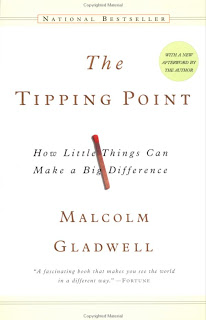On Tuesday, March 22, President Obama signed into law H.R. 3590, The Patient Protection and Affordable Care Act, representing the biggest change to the US healthcare system since Medicaid was introduced in 1965. But it’s not over yet. Many are unhappy with the final bill, and vow to protest it. The mood has turned ugly in many parts of America, as some think the bill will create a crushing financial burden on our future, and our children’s future, or was arm-twisted through the Senate and lacks any kind of bipartisanship, or even some think brings us ever closer to socialism. The victors are proud of their achievement, that despite the opposition, the bill was passed and a new era of healthcare begins.
For those of us with hemophilia or VWD, the bill provides the changes we have been advocating for years:
• Eliminates lifetime caps in new and existing health insurance plans six months after enactment of the bill
• Eliminates rescissions in all health insurance plans 6 months after enactment
• Extends coverage for dependents, to stay on a parent or guardian’s insurance plan until age 26, six months after enactment
• Restricts annual caps in new plans before 2014, and then eliminate them in all new plans and existing group plans in 2014.
• Eliminates pre-existing conditions exclusions for children in new plans 6 months after enactment, and for all people in all plans in 2014
If the bill is not challenged or changed, our children will not face discrimination due to their disorder. They will be able to be insured.
There are serious attempts to change the bill. So we will all need to read and watch to see whether those attempts are successful in changing the bill as it stands. Many of the changes, should they stay, will not go into effect immediately; some, not even for years. Continue to read about healthcare insurance issues to know what is changing, what isn’t changing, and how this impacts bleeding disorders and you in particular.
And everyone has a right to be concerned about not just healthcare but our nation’s financial health. Try to read up on the facts about national debt, macroeconomics and how the Act will be funded. It’s extremely complicated, and not done justice with sound bites from TV or radio personalities. Will our children instead face greater out-of-pocket costs now? No one knows for sure how this will all play out. Keep reading, debating and forever watching your insurance policy. Now is not the time to get complacent, even though it seems our dream of better insurance for our children is here.

Interesting Book I Just Read
The Tipping Point by Malcolm Gladwell
Gladwell looks at the phenomenon of how some ideas and products take consumers by storm, while others fade away. Even when small numbers of people start behaving differently, as in accepting fads or new trends, their behavior can ripple outward until a critical mass or “tipping point” is impacted… which can change history. He coins three types of people who help create this ripple effect. He hops from examples as random as Hush Puppies shoes and even the drop in violent crime in New York, and teenage suicide. Gladwell seems to be tying together a theory, but the whole book feels as though it’s trying much too hard to impress, much too hard to prove this theory. It’s not science and it’s not good sociology. In fact, I think Gladwell himself is just trying to create a ripple and hoping it goes viral! This book was on the beset seller list, but I wasn’t so impressed. It’s interesting, worth a read, but it’s kind of sociology-lite. Two stars.


1 thought on “National Healthcare Reform: The Aftermath”
How can sound healthcare components be "very bad" for this country?
In my humble opinion, allowing so many of our middle and lower class families to be on the verge of losing their healthcare (if they weren't part of the 55 million that didn't have any to begin with) or to struggle to attain it based on stringent income requirements or exclusion based on pre-existing conditions is far worse for such a great country.
Worse is how our system of healthcare stagnates the ability of the middle class to be entrepreneurial in their endeavors. It is near impossible for many, especially those with costly conditions, to self-employ and to be employed…. See More
Will these issues be solved by one healthcare bill passage? The answer is obviously no, but I think it's a step in the right direction. Anything that assists the working middle class is hard to classify as a "very bad" thing for this country.
My biggest concern with the bill: Will insurance companies have the ability to price those with existing conditions out of the market with exuberant prices, instead? I really hope not, because little would change.
I think it's important for Americans to put the new healthcare reform measurements in context with other government expenditures. For instance, the new healthcare reform measurements will cost taxpayers $940 billion spread over 10 years (or 9.4 billion per year). On the other hand, the American taxpayer pays $1.03 trillion dollars every single year on military defense – more than the entire world spends on military COMBINED. Seldom is there a movement aimed at curbing taxpayer spending on military, but somehow, when the middle-lower class health care/welfare is involved, we suddenly are pushed into being ultra fiscally conservative.